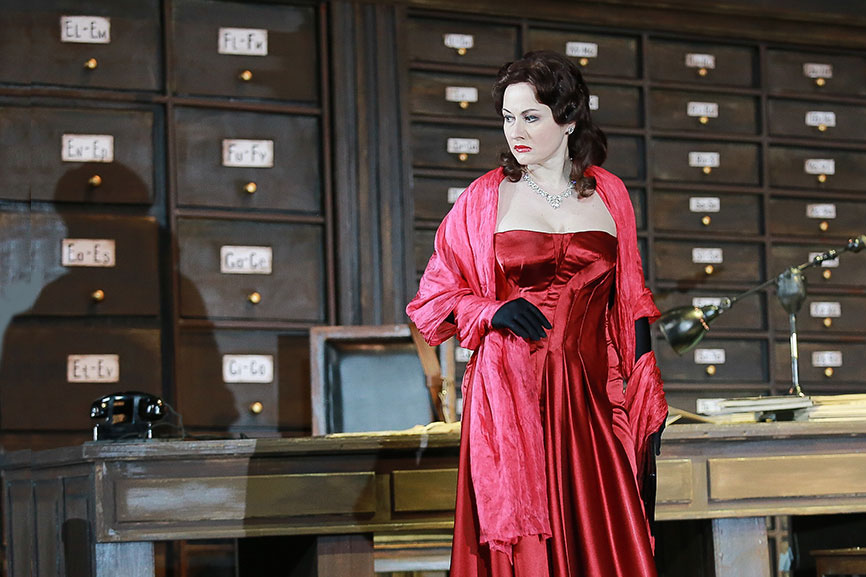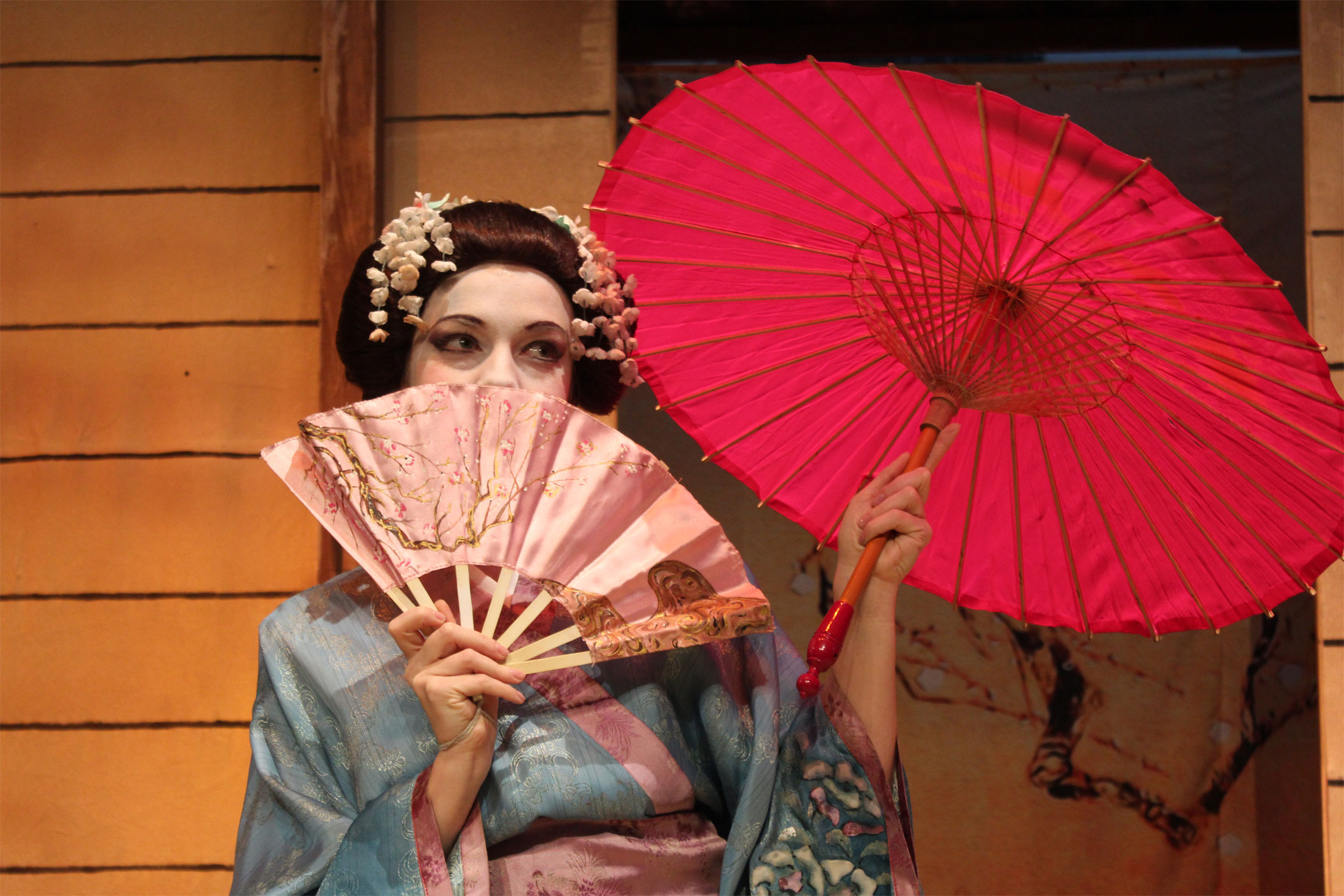
Tosca
The ingredients of Tosca are easy to identify. But the emotional roller-coaster they can produce when performed with true artistry and passion is something else. So I’m glad to report that this Russian State Opera production, dug deep into the well of feeling that is Puccini’s genius.
Written in 1900, it is a heart–rending story of the power and resilience of love in the face of evil. It is set one hundred years earlier during the Napoleonic wars, in a Rome controlled by Naples and its evil chief of police: Baron Scarpia. In a chance meeting, Angelotti – an escaping political prisoner, enlists the help of the artist Cavaradossi, The painter’s subsequent secretiveness alarms his girlfriend, the famous singer Tosca. She assumes he has another lover, and Scarpia fans her jealously to wheedle out information.
Cavaradossi is tortured and, unable to bear his cries of pain, Tosca reveals Angelotti’s hiding place. Then when a French victory at The Battle of Moreno is announced, Cavaradossi defiantly shouts his republican sympathies and is condemned to death. The Baron, however, intent upon seducing Tosca, promises to make it a mock execution by firing squad if she will sleep with him. She agrees, but immediately he signs the release order, stabs him and heads for Cavaradossi’s prison to warn him to play dead. Scorpia however lied. Cavaradossi is killed and, as the guards close in, Tosca leaps to her death from the castle wall, vowing to meet Scarpia before God.
Touring opera today faces not just the competition of the big battalions in centres of excellence, but also there live cinema transmissions. Yet companies like the RSO remain vital to our enjoyment. Smaller casts, orchestras and budgets certainly: but also smaller theatre ticket prices, and the opportunity to experience locally, the real vibrancy and immediacy of live performance. Something a screen can never provide.
The quality of the singing was certainly not bargain basement. Larisa Akhmetova in the classic soprano role of Tosca lived up to the great tradition, and acted with sorrow, passion and proud fury. The aching beauty of her aria I lived for art, I lived for love will long remain with me.
As Cavaradossi, Mikhail Makarov was also supremely assured, and with a very human sense of humility and nobility, avoided the trap of tenor heroics. His aria of remembered love as he awaits execution, was also highly memorable.
Ruslan Sigbatulin as Baron Scarpia received some mock booing along with applause with the curtain calls. Not panto stuff you understand, but a tribute to the subtle way his chilling baritone released the darkness within Puccini scoring. His scenes with Larisa Akhmetova in Act 2 were mesmerising.
The most important voice of all of course is the orchestra: anticipating, underscoring, commenting and dramatising every important action and mood with fragments of melody and psychological impact. Full credit to conductor Evgenii Kirilov and his spirited but moderate sized orchestra, for meeting the essentials of dynamics and detail.
One final thought. It was sung by Russians for an English audience in Italian – the language of its creation. Might there be some sort of hint about wider international harmony there? ★★★★☆ Derek Briggs 23rd September 2017
 Madame Butterfly
Madame Butterfly
Russian State Opera is touring Puccini at the moment and one of its flagship performances is, naturally, Madame Butterfly. The story of a tragic forsaken woman in Japan remains a compelling piece for directors and audiences alike. The subject matter itself of course shows a comically dated view of Oriental culture but that doesn’t detract from the musical and narrative value of the work, nor does viewing it in this context diminish its effect when done right. This staging of Madame Butterfly succeeds firmly on its core elements – most notably Cio-Cio-San herself – though it does have to overcome a few detracting elements.
A hiccup which I was disappointed to see was that the surtitles did a poor job of aligning with the libretto as sung. The nature of surtitles means they are always going to struggle to match up with rapid sections of repartee in an opera but, in the first half especially, these were egregiously desynchronised across the board. However, of all the media to come furnished with subtitles, opera arguably suffers least from errors like this. The merit of the piece is less about the revelation of the dialogue: knowledge of the plot is presumed in the audience or cribbed from programme anyway. It’s undesirable, certainly, for this to be the case but it hardly dampens the musical merits of Madame Butterfly.
A far more subjective gripe I have to offer is that the production is a touch overwrought in appearance. Now, I have a self-confessed preference for theatrical minimalism in opera, so this may well prove a virtue of the production for those who like lavish sets and costumes. I think it verged on the pantomimical – better to suggest the setting than realise it garish tones – but I will happily caveat this as a clash of sensibilities.
Where I cannot fault the production at all is with the central performance. Elena Razguliaeva was able to carry the production in both theatrical and musical terms. Her enthusiastic applause was well-earned by the close. She is most ably supported by Zinaida Dyuzhova as the attendant Suzuki, and both Andrey Puzhalin and Iashvili Rostom prove expressive in the roles of the Consul and the inconstant Pinkerton. It is a blessing that the main roles are so strong though, because a few of the minor supporting roles prove not so adept at projecting. Goro and Yamadori stand out for this.
Essentially, the defining elements of Russian State Opera’s Madame Butterfly are more than deserving of effusive praise. The main roles, especially the eponymous one, are performed forcefully, but it is a pity to see these battling to overcome smaller missteps in the production. ★★★☆☆ Fenton Coulthurst 24th September 2017

